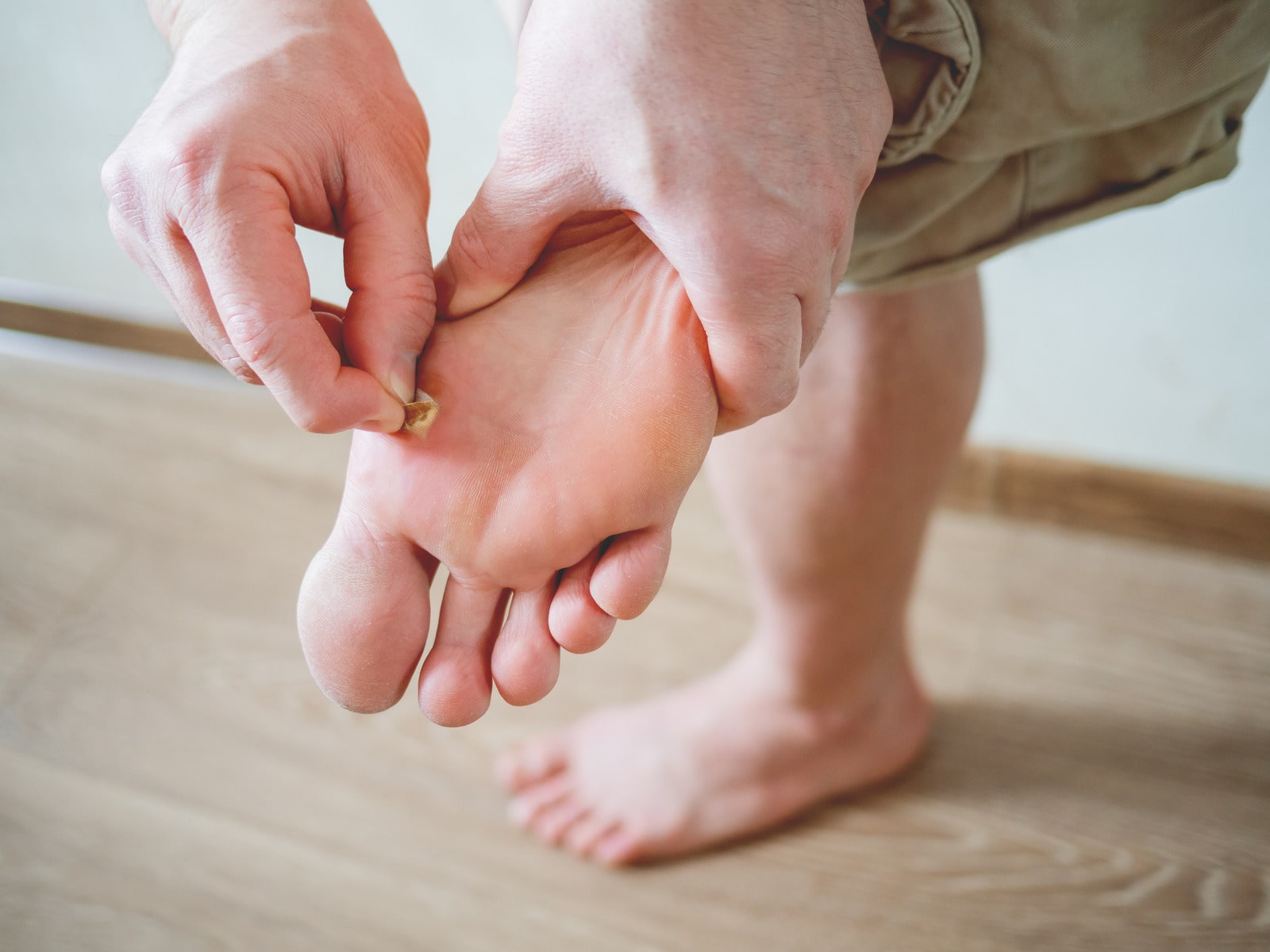
Plantar warts and corns are both common foot complaints that have a similar appearance—so similar that you might not be sure what you’re seeing if you find one on your foot. Even though they look the same, though, they have different causes and require different treatment, so it’s important to correctly identify which you have before you attempt to deal with it.
Plantar warts and corns are both small, rough skin growths with a hard center that are tender when touched. However, a closer look will reveal subtle differences in their appearance. A wart will tend to be small, skin-colored, and rough to the touch, but it will also look grainy, with small black dots sprinkled around it. (A plantar wart may also be flattened from pressure, depending on where on the sole of the foot it is.) A corn lacks this grainy appearance, looking instead like a hard raised bump with dry, flaky skin around it. These variations are due to the different root causes of warts and corns, and they may not be easy to distinguish.
The biggest difference between a plantar wart and a corn is what causes it. A plantar wart, like a wart anywhere on the body, is caused by a virus—specifically, certain strains of the human papillomavirus (HPV). The virus infects the outer layer of the skin through tiny cuts or breaks in the skin. The types of HPV that cause plantar warts aren’t highly contagious, so they aren’t typically passed from person to person, but they do thrive in warm, moist environments like gym locker rooms.
Corns, on the other hand, are caused by friction and pressure. Corns on your feet are most likely to develop from wearing poorly fitting shoes, either too tight (which causes excessive pressure) or too loose (which allows the foot to slide around and increases friction). They aren’t contagious, but you may be at higher risk of developing corns if you have bunions, hammertoes, or other foot deformities.
Both warts and corns can be effectively treated. Warts may even go away on their own, although it can take a year or more. To treat corn yourself, the first step is to start wearing shoes that fit correctly and get rid of any shoes that irritate the affected area. You may need to add shoe inserts or padding to provide extra cushioning. Over time the hardened skin will disappear as the source of pressure or friction is removed. To hasten the disappearance of the corn, you can also try soaking it in warm water and then gently filing it down with a pumice stone. If you’re a diabetic or have circulation issues you should never use a pumice stone in this case. Applying lotion to the dry skin around the corn may also help alleviate discomfort.
Even though plantar warts and corns may not generally be considered serious health concerns, you shouldn’t hesitate to consult a podiatrist to identify and treat them. This is especially true if:
• Your efforts to treat a wart or corn yourself aren’t successful.
• If the wart has been around for nearly 1 year
• The condition is painful to the point where it interferes with activities.
• You have diabetes or another health condition that causes a poor sensation in your feet, as self-care is not advisable in this circumstance.
At Corona Foot & Ankle, we can effectively remove plantar warts with prescription-strength treatments or immune therapy as needed. We can also safely and easily remove painful corns. Most importantly, we can also help you avoid having these problems recur in the future.
The medical doctors at Corona Foot & Ankle know that even seemingly minor foot problems can prevent you from living your fullest pain-free lifestyle. We are also here to prevent infections that may lead to amputations. We’re here to provide effective treatment for all your foot concerns, big or small. To find out more about our services, contact us here today.
Have any questions about treatment? Feel free to make an appointment, Our team will reach you soon!
Contact Us